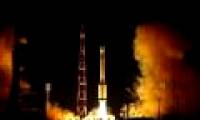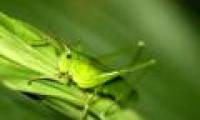
A group of scientists have studied the protein sequence on living organisms like highly adaptive machines, capable of regulating the organism's own evolution.

In the morning of March 2, Russia successfully launched three new satellite navigation orbits, complementing Russia's Glonass positioning satellite system operating in orbit.

According to Xinhua, in the next few days, China plans to launch a third satellite to guide North Dau Dau into orbit Truong Chinh-3III.

In the next 3 years, Russia will launch 11 additional satellite satellites for GLONASS global positioning system.

Thanks to the ability to sense many smells at once, a desert ant in Tusinia uses odor information to create an image of the surrounding environment.

A recent study by scientists from Cambridge University (UK) found that grasshoppers correctly positioned each step based on sight, not feeling.

To buy a car is not difficult, but drivers in the Netherlands will have to pay taxes for every kilometer that their vehicles circulate on the road.

Scientists from Kyoto University, Japan have collaborated on new technology to diagnose cancer by locating cancer.

A blind boy in England has the ability to identify objects after being taught the dolphin method to help locate echoes.

With a pea-like camera, image analysis software and a super-small laptop, the blind can locate objects in the surrounding environment.
 A group of scientists have studied the protein sequence on living organisms like highly adaptive machines, capable of regulating the organism's own evolution.
A group of scientists have studied the protein sequence on living organisms like highly adaptive machines, capable of regulating the organism's own evolution. In the morning of March 2, Russia successfully launched three new satellite navigation orbits, complementing Russia's Glonass positioning satellite system operating in orbit.
In the morning of March 2, Russia successfully launched three new satellite navigation orbits, complementing Russia's Glonass positioning satellite system operating in orbit. According to Xinhua, in the next few days, China plans to launch a third satellite to guide North Dau Dau into orbit Truong Chinh-3III.
According to Xinhua, in the next few days, China plans to launch a third satellite to guide North Dau Dau into orbit Truong Chinh-3III. In the next 3 years, Russia will launch 11 additional satellite satellites for GLONASS global positioning system.
In the next 3 years, Russia will launch 11 additional satellite satellites for GLONASS global positioning system. Thanks to the ability to sense many smells at once, a desert ant in Tusinia uses odor information to create an image of the surrounding environment.
Thanks to the ability to sense many smells at once, a desert ant in Tusinia uses odor information to create an image of the surrounding environment. A recent study by scientists from Cambridge University (UK) found that grasshoppers correctly positioned each step based on sight, not feeling.
A recent study by scientists from Cambridge University (UK) found that grasshoppers correctly positioned each step based on sight, not feeling. To buy a car is not difficult, but drivers in the Netherlands will have to pay taxes for every kilometer that their vehicles circulate on the road.
To buy a car is not difficult, but drivers in the Netherlands will have to pay taxes for every kilometer that their vehicles circulate on the road. Scientists from Kyoto University, Japan have collaborated on new technology to diagnose cancer by locating cancer.
Scientists from Kyoto University, Japan have collaborated on new technology to diagnose cancer by locating cancer. A blind boy in England has the ability to identify objects after being taught the dolphin method to help locate echoes.
A blind boy in England has the ability to identify objects after being taught the dolphin method to help locate echoes. With a pea-like camera, image analysis software and a super-small laptop, the blind can locate objects in the surrounding environment.
With a pea-like camera, image analysis software and a super-small laptop, the blind can locate objects in the surrounding environment.









 Why did the ancient Babylonian civilization perish? Was it because they considered 'that thing' a daily meal?
Why did the ancient Babylonian civilization perish? Was it because they considered 'that thing' a daily meal? Just discovered a 72km 'tear in the Earth', the world's second largest country is in fear of a tsunami attack
Just discovered a 72km 'tear in the Earth', the world's second largest country is in fear of a tsunami attack Top 7 facts about the hottest place in the world, where you can fry eggs at outdoor temperature
Top 7 facts about the hottest place in the world, where you can fry eggs at outdoor temperature The Qing Dynasty collapsed, what surname did 20,000 royal descendants change to to integrate into the new era?
The Qing Dynasty collapsed, what surname did 20,000 royal descendants change to to integrate into the new era? After 389 days in the Arctic, costing more than $160 million, hundreds of scientists brought back bad news: What was it?
After 389 days in the Arctic, costing more than $160 million, hundreds of scientists brought back bad news: What was it? How long does it take to fall in love with someone?
How long does it take to fall in love with someone? How much silver has ever been discovered in the world?
How much silver has ever been discovered in the world? How does an atomic bomb work?
How does an atomic bomb work?